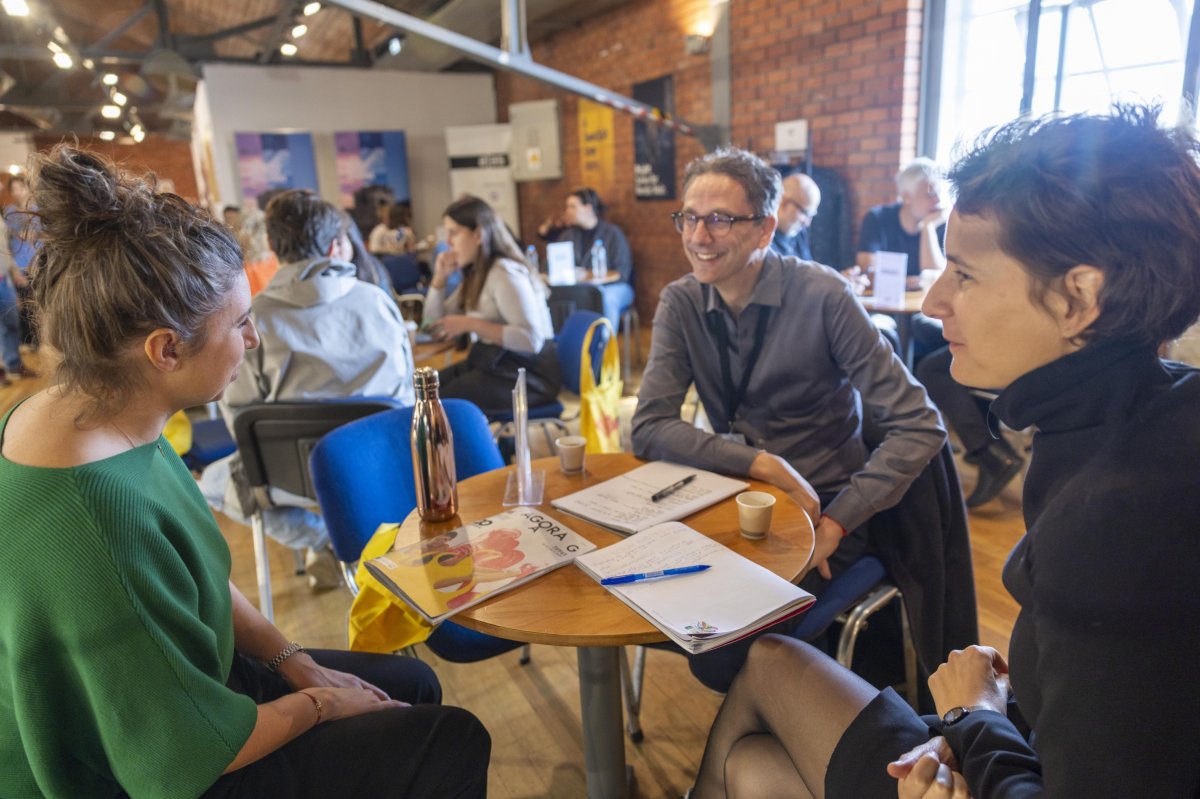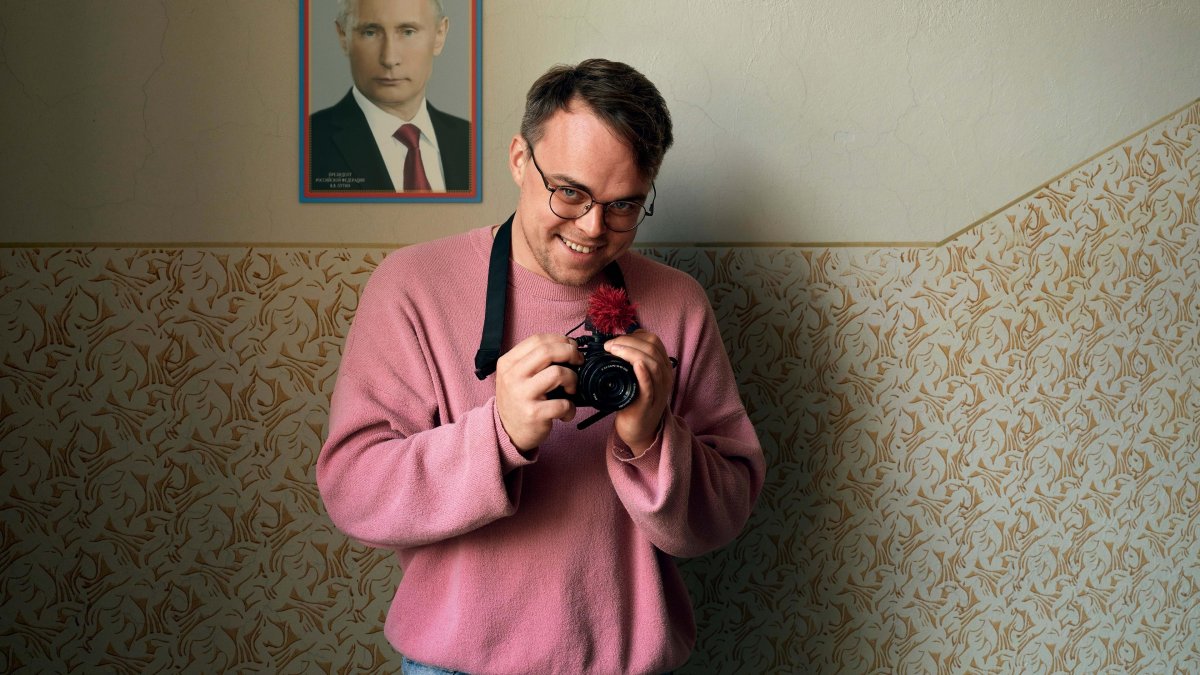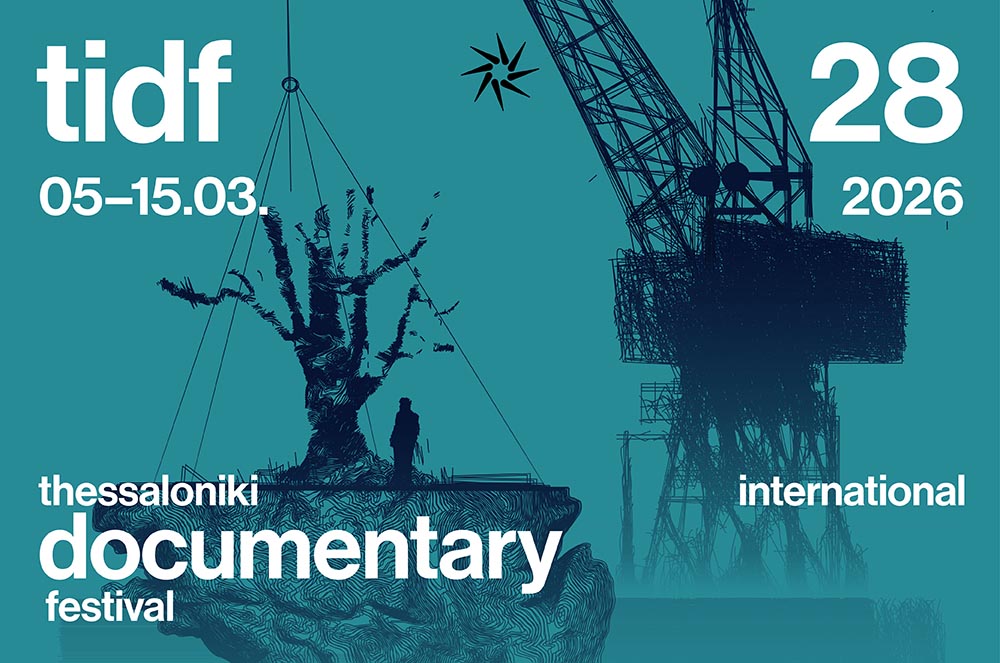BALKAN SURVEY
The press conference program of the 44th Thessaloniki International Film Festival began with two Balkan directors, Ludmil Todorov and Goran Radovanovic. In the press conference given today, Sunday, November 23rd, 2003 at Warehouse C of the Thessaloniki Port, the two directors answered questions from the coordinator of the Balkan Survey section, Dimitris Kerkinos and from the public.
Ludmil Todorov spoke about his choice to shoot his film with another director. “Ivailo Hristov is an exceptional actor, funny, gifted and from my generation. About ten years ago when I was writing the script in its original form, I had three actors in mind. One of them was Ivailo Hristov. At the time I wasn’t able to shoot the film because I couldn’t come up with the funds. In the meantime, the years went by and the three actors grew up, but my story involved young characters. When I was finally able to come up with the money, I decided to call Ivailo Hristov to help me bring a breath of fresh air to the dialogues and to rejuvenate and enrich the film”.
The Bulgarian director also spoke about his future plans. He said that his new film was submitted to the Balkan Fund, which began its proceedings in Thessaloniki a few days ago. “It passed the first stage of selection. The film is about three young women that arrive in Sofia to try to find a job. It focuses on dreams, expectations, relationships and the big-city struggle to get by. I’d have to say that my new film has an organic relation with the film ‘Emigredes’, only now it centers on young women rather than men. In any case, it is about young people, 20-25 years old who try to start their lives, struggling to survive and to improve, in an economy that is anything but favorable”.
Ludmil Todorov spoke about his experience from the previous Thessaloniki Film Festival where his film Emilia’s friends won the FIPRESCI prize. As he said, he wasn’t able to attend the Festival then. “My colleagues called me, informed me about the prize and told me to come to Thessaloniki to receive it. I wasn’t able to. I remember it was Saturday, I needed a visa and I couldn’t get it in time. This year, though, I made it. I’m impressed from the Festival’s size and the enthusiasm of the public. I saw people waiting in huge lines to buy tickets. That makes any director happy”, he concluded.
Goran Radovanovic’s film “Casting” was based on a fake casting for a pantyhose advert. The people who attended the casting were the stars of the film. “Initially I intended to make a fiction film about the politics and social transitions in my country. None of the people that were at the casting for the advert knew that they were part of a documentary, but neither did I: it wasn’t until I began the process when I realized I had the material that constituted a miniature of Serbian society”. The director revealed that the participants haven’t seen the film. “I’m a bad director who leads his actors. I tried to make a documentary without having to pay the participants. In the end they learned what they had been a part of but I never treated them like actors”.
Ludmil Todorov is pessimistic about the situation in Serbia. “We live in a dangerous, continuously changing land. Thousands of people are unable to return to their homes and nobody seems to be doing anything about it. Serbia houses the largest American military camps in Europe with 40,000 soldiers. Not only am I pessimistic about the future of Serbia, I’m desperate”.
As far as his work in general, he said that his documentaries are “rarely seen by people. They are not interested in seeing their reflection in a mirror. I don’t make films for the public but for myself. Documentaries are not popular in Serbia, as opposed to fiction films that are blockbusters. Foreign television stations, though, show Serbian documentaries, especially creative ones, much more often than Serbian television does”. In conclusion, he revealed his future plans that include the fiction feature film “Confession”, that deals with people and situations in Serbia from the last 50 years.














